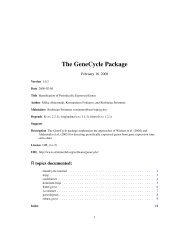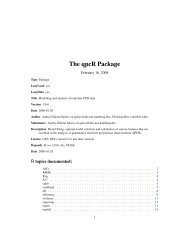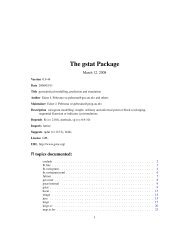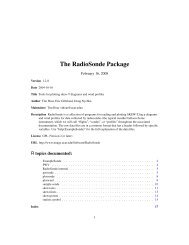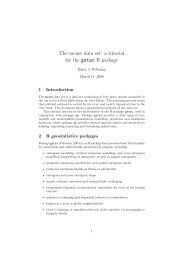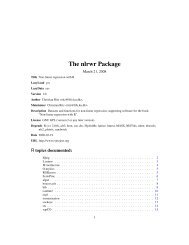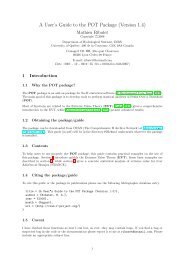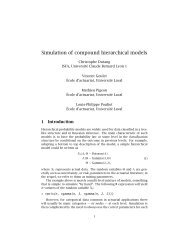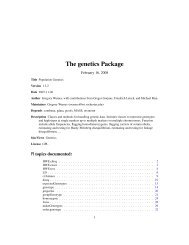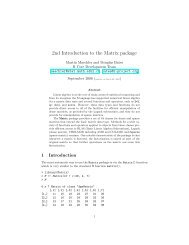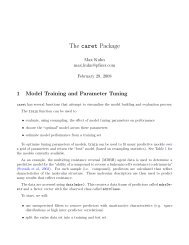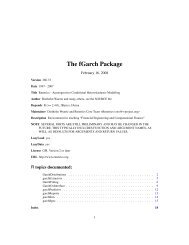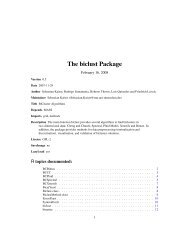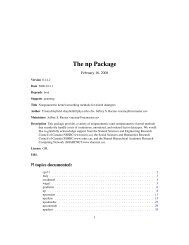The mvpart Package - NexTag Supports Open Source Initiatives
The mvpart Package - NexTag Supports Open Source Initiatives
The mvpart Package - NexTag Supports Open Source Initiatives
You also want an ePaper? Increase the reach of your titles
YUMPU automatically turns print PDFs into web optimized ePapers that Google loves.
26 rpart<br />
model<br />
x<br />
y<br />
Details<br />
Value<br />
parms<br />
control<br />
cost<br />
keep a copy of the model frame in the result. If the input value for model is a<br />
model frame (likely from an earlier call to the rpart function), then this frame<br />
is used rather than constructing new data.<br />
keep a copy of the x matrix in the result.<br />
keep a copy of the dependent variable in the result.<br />
optional parameters for the splitting function. Anova splitting has no parameters.<br />
Poisson splitting has a single parameter, the coefficient of variation of the prior<br />
distribution on the rates. <strong>The</strong> default value is 1. Exponential splitting has the<br />
same parameter as Poisson. For classification splitting, the list can contain any<br />
of: the vector of prior probabilities (component prior), the loss matrix (component<br />
loss) or the splitting index (component split). <strong>The</strong> priors must be<br />
positive and sum to 1. <strong>The</strong> loss matrix must have zeros on the diagnoal and positive<br />
off-diagonal elements. <strong>The</strong> splitting index can be gini or information.<br />
<strong>The</strong> default priors are proportional to the data counts, the losses default to 1, and<br />
the split defaults to gini.<br />
options that control details of the rpart algorithm.<br />
a vector of non-negative costs, one for each variable in the model. Defaults to<br />
one for all variables. <strong>The</strong>se are scalings to be applied when considering splits,<br />
so the improvement on splitting on a variable is divided by its cost in deciding<br />
which split to choose.<br />
... arguments to rpart.control may also be specified in the call to rpart.<br />
<strong>The</strong>y are checked against the list of valid arguments.<br />
This differs from the tree function mainly in its handling of surrogate variables. In most details it<br />
follows Breiman et. al. quite closely.<br />
an object of class rpart, a superset of class tree.<br />
References<br />
Breiman, Friedman, Olshen, and Stone. (1984) Classification and Regression Trees. Wadsworth.<br />
De’ath G. (2002) Multivariate Regression Trees : A New Technique for Constrained Classification<br />
Analysis. Ecology 83(4):1103-1117.<br />
See Also<br />
rpart.control, rpart.object, summary.rpart, print.rpart<br />
Examples<br />
data(car.test.frame)<br />
z.auto



